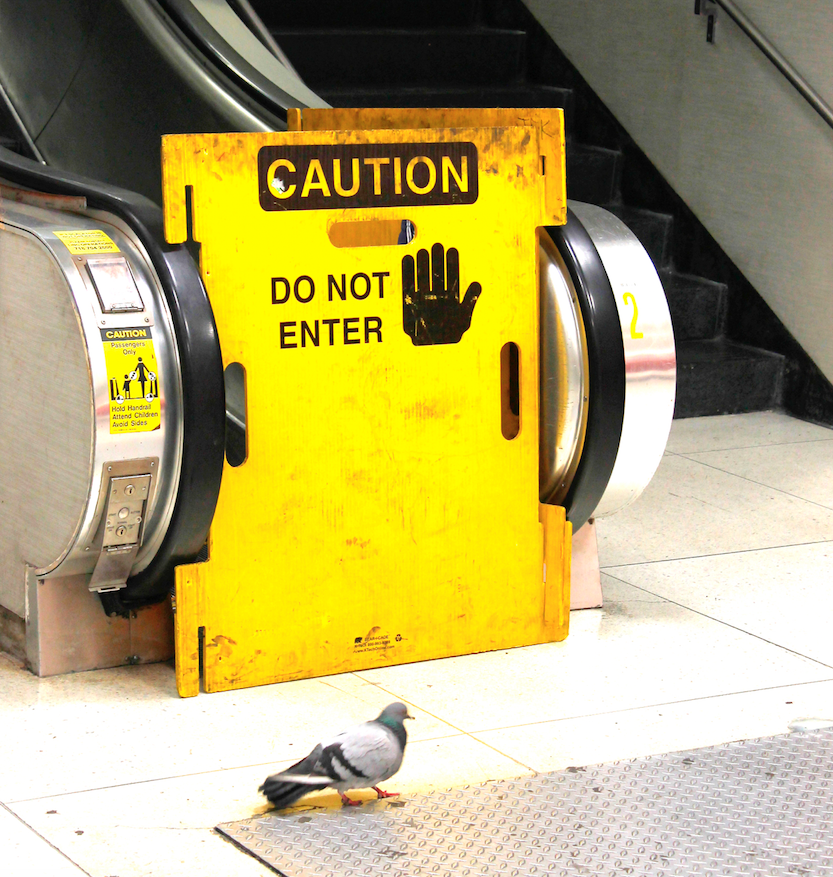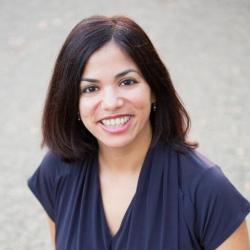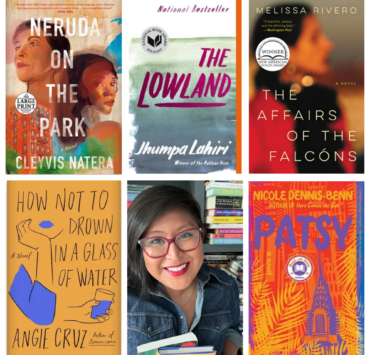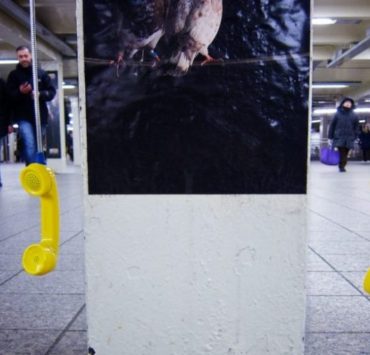
I grew up believing that I belonged to a family of birds. When your family comes from Colombia, Cuba, Puerto Rico and Peru—the border is not a desert or a river but the entire sky. For years I thought of my family not as border crossers but as a flock of birds migrating north. The clouds kept secret that my mother and her sisters planned to overstay their tourist visas. The stars refused to snitch on my tía who hoped to find a doctor in New York to save her life. The sun only noticed that my tío fled further north.
When I read Gloria Anzaldúa’s book Borderlands/La Frontera, however, I recognized her descriptions of the place where two nation states meet. I don’t mean that I understood the metaphor. I mean I recognized an actual place. My family had never been a group of birds. We had a border. We had the aeropuerto.
The John F. Kennedy airport in the 1980s was full of knees. That is how the airport looked to me: a gathering of knobby knees and skinny knees and bulging rodillas. The knees filled the waiting area, a patch of land where the florescent lights flickered like a series of suns at dusk, and the men stood alone and stared at the door and the women sat in a row of plastic chairs with children who cried.
Some of the knees tried to turn the waiting area into a party room. They brought bouquets of roses and white carnations, the tissue paper singing in their hands. They carried balloons in bright colors, and one time, a balloon escaped and bumped into the walls. Someone chased after it to no avail. We lost the balloon. Even though my mother had not brought the balloon, it felt like ours. The border did this to us. It turned strangers into first person plural. For a few hours, we belonged to the same country, the place of waiting for sisters, tías, husbands and cousins.
This is not to say that we agreed about the border. Some families came with balloons; my mother insisted on the dangers of el Kennedy. She had a round, pale face and a head of dark auburn hair. Her fingernails were polished, the color of pink salmon, and she sat in the plastic chair at JFK and clasped her hands and prayed, Ojalá, la dejen pasar. Ojalá, the doors will finally open. Ojalá, we won’t have to wait much longer.
Sometimes we didn’t wait for family but crossed the border ourselves. The year I was seven, we arrived at JFK from a three-week trip, and my mother sighed. She had to open the suitcases. Here, where Colombia met Nueva York, Mami had to peel back the foil on a container of arequipe so a white man with large hands could sniff the caramel. A flurry of English words erupted. He needed someone to speak Spanish. Here, the memory blurs. They found someone with enough words in Spanish to question my mother.
The man with the large hands returned the container, poked his fingers into our other bags. I was a child and I did not understand that flights from Colombia came with more than cafe and cheese. I didn’t know how Colombia and all of Latin America rested in the hands of a few families there and the dictates of Washington. What I did know was that at the border white men with large hands could take what they wanted. Perhaps, it was an accurate observation of everything else.
Most of all, I remember the dog. A German shepherd, he glanced at me with empty black eyes, then poked his snout at the suitcases and at my sneakers. The leather leash slackened. I held my breath. I knew I was not allowed to touch the dog though I wanted to and was terrified to do so.
I didn’t know then that each security dog is worth thousands of dollars. That they are trained, like soldiers, in a school in Texas, run by the Defense Department.
What I did know was that we had to scale the wall: the dog, the white man, the entire airport. With Gloria’s book, I learned that some places cannot be crossed. Some places become a part of who you are, become like your neck or your knees: a kind of reckoning.
Image Credits: formulanone

Daisy Hernández is the author of The Kissing Bug: A True Story of a Family, an Insect, and a Nation’s Neglect of a Deadly Disease, which won the 2022 PEN /Jean Stein Book Award and was selected as an inaugural title for the National Book Foundation’s Science + Literature Program. She is also the author of the award-winning memoir A Cup of Water Under My Bed and coeditor of Colonize This! Young Women of Color on Today's Feminism. She is an Associate Professor at Northwestern University.







